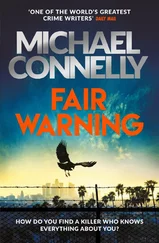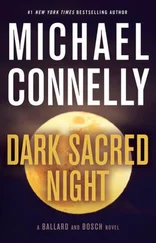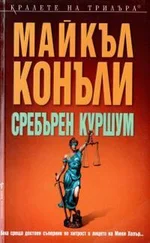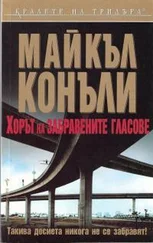“Exactly,” I said.
“What’s in the boxes?” Bosch asked.
“Not much,” I said. “A pair of boots with grease in the treads. We’re almost finished.”
I went back to the last box and saw that the bottom was lined with various documents and paperwork—things that were probably stuffed into a kitchen drawer. There was an instruction manual for the coffee maker, a set of step-by-step directions for putting together an Ikea table, and several opened letters from Neiderland. That Scales had kept them reinforced in me the idea that they’d had a romantic relationship.
There was also a trifold and stapled printout of a story from the
New York Times. The headline read “Bleeding the Beast.”
The story had a Salt Lake City dateline. I started reading and by the time I finished I knew that the story changed everything. And I knew that the printout was something I would need to turn over in discovery to the prosecution—if I took it from the garage.
I refolded the printout and dropped it back into the box. I picked up the Mack truck owner’s manual and dropped it in as well. I then closed it up and stacked two other boxes on top of it.
I pulled my phone and texted Bishop, telling him to come pick me up.
“Okay, we’re out of here,” I said.
“Wait,” Cisco said. “You don’t want to take any of this stuff?”
“We take it, we have to share it,” I said.
“Discovery,” Cisco said.
“Let them discover it on their own,” I said. “They’re not doing me any favors, I won’t do any for them. Let’s go. I have court.”
I checked Bosch as we walked out to see if he showed any signs of discomfort with my decision to leave everything behind. I didn’t see a thing.
Bishop was pulling up out front as we emerged. I handed Cisco the key to the apartment.
“You mind taking the key back to the old lady?” I asked. “And get her name and contact info. To put on the witness list.”
“You got it,” Cisco said.
“Tell her we found nothing of value to the estate in the boxes. She can donate them or get rid of them any way she wishes. As soon as she wants to.”
Cisco looked at me and nodded. He understood what I meant. Get rid of the property before the police or prosecution finally find this place.
“I’ll deliver the message,” he said.
25
Things had changed rapidly since the first hearing on Sam Scales’s missing wallet. My outrage over the missing evidence and its impact on my case was now tempered by my team’s findings of the last forty-eight hours. I believed I had learned the key secret of the wallet—the alias Sam was using in the last year of his life. And now I didn’t want to share that secret with the prosecution until I had to. I certainly didn’t want it to be pursued by a court order or continue to be an issue. This led me to approach the hearing in Judge Warfield’s courtroom cautiously and with a plan to score points—especially in front of the reporters who would be there—but to let sleeping dogs lie.
Judge Warfield was again a solid ten minutes late coming to the bench for the afternoon session. This gave me time to update Jennifer on the morning’s activities. I told her about the Times story from Salt Lake City and the need to keep the knowledge it gave us under wraps. I cautioned her against printing out the story if she looked it up in the newspaper’s archives.
“If it’s on paper, it goes into discovery,” I said. “So, no paper.”
“Got it,” Jennifer said.
“Also, there was a man in the story, a witness named Art Schultz. He was retired from the EPA. We need to find him and bring him in as a witness. He’ll be key.”
“But what happens when we put him on the witness list? The prosecution will be all over it and they’ll figure out where we’re going with this.”
Each side’s witness list was included in discovery, and the court required an abbreviated summary of what every witness would testify to. Writing these so that they were accurate on face at the same time that they carried no hint of strategy or significance of the full testimony was an art form.
“There’s a way around it,” I said. “To camouflage it. Make contact with Schultz and get his CV. He was with the EPA, so he probably has a biology degree or something like that. Put him on the list and say he’ll testify in regard to the material found under the victim’s fingernails. He’ll be our grease expert and will probably fly well below the prosecution’s radar. But once we get him on the stand, we’ll use him to connect what’s under the nails to what’s going on at BioGreen.”
“Risky, but okay,” Jennifer said. “I’ll work on it after the hearing.”
The judge stepped out from the door to her chambers and took the bench. She first apologized for being late, explaining that a monthly judges’ luncheon had run long. She then got down to business.
“This is a continuation of a motion to compel discovery by the defense, and I believe, Ms. Berg, that I instructed you to investigate the matter of a missing wallet and to report back to the court. What have you found?”
Berg stepped over to the lectern to address the court. She looked pained as she adjusted the level of the microphone.
“Thank you, Your Honor,” she said. “Simply stated, the wallet remains missing. Over the past two days, Detective Drucker has conducted an investigation and is here to testify if necessary. But the wallet was not found. The People concede that the video evidence presented by the defense Monday is conclusive in that regard—there does appear to have been a wallet in the victim’s back pocket at the time the body was discovered in the trunk of the defendant’s car. But it was not among the personal property that was later turned over to the LAPD at the coroner’s office.”
“Have you determined when it was taken or by whom?” Warfield pressed.
“No, Your Honor,” Berg said. “The procedure is that the body would have been transported to the coroner’s office, where it would have been placed in the prep room. That’s where clothing and property is removed and the bodies are prepared for autopsy, while the property is sealed and held for the police. In this case specifically, the body was discovered in the evening and therefore not delivered to the prep room until approximately two a.m. This means that autopsy prep would not have occurred until the morning.”
“So, the body would have just been sitting there unattended?” the judge asked.
“Not exactly,” Berg said. “It would have been moved to a large refrigerated crypt that is part of the coroner’s office.”
“So, it was in with other bodies.”
“Yes, Judge.”
“Not isolated.”
“Not beyond being in a crypt where authorized access is required.”
“Did Detective Drucker check to see if there are any surveillance cameras in the area?”
“He did and there are no cameras.”
“So we have no way of knowing who may have gained access to this crypt and taken the wallet.”
“That is correct at this time.”
“At this time? Do you think that is going to change?”
“No, Your Honor.”
“What is it that the People suggest I do about this, Ms. Berg?”
“Your Honor, the People make no excuse for the loss of this property. However, it is a loss that impacts both sides equally. Neither the People nor the defense has the opportunity to access the wallet and whatever case information, if any, it contained. Therefore, it is the People’s position that while we accept responsibility for the loss, the damage—if any—is equal.”
Warfield digested that for a few moments before responding.
“Something tells me that Mr. Haller is not going to agree with that assessment,” she said. “Would the defense like to respond?”
Читать дальше
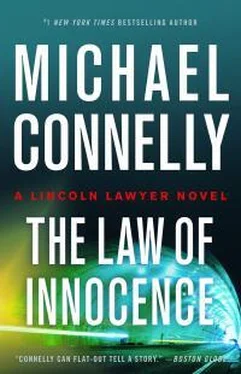
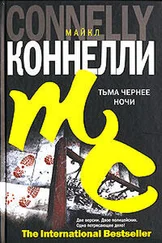
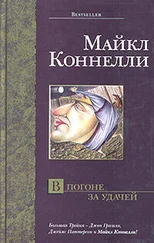

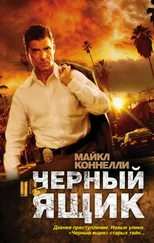
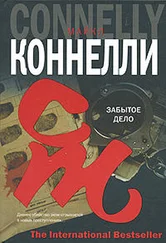

![Майкл Коннелли - Christmas Even [Short story]](/books/390532/majkl-konnelli-christmas-even-short-story-thumb.webp)
